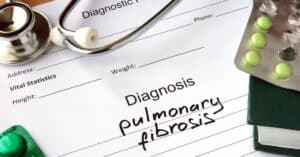When you’re living with chronic obstructive pulmonary disease (COPD), you’ve probably heard of and tried a lot of different COPD treatments.
It can be confusing to keep track of all of your COPD treatment options.
To help you better understand your COPD treatment options, we’ve broken them down into traditional COPD treatments versus natural COPD treatments.
Traditional COPD Treatment
Typically, traditional COPD treatment options include a variety of medicines, inhalers, steroids and anti-inflammatories. These types of medications do different things to help you manage COPD symptoms.
Bronchodilators
Bronchodilators are a type of medicine used to relax your airways, which helps them stay open and makes breathing easier. Usually, bronchodilators are taken through an inhaler, so the medicine passes straight into your lungs.
Your healthcare team can show you how to use your specific inhalers.
Within bronchodilators, there are short-acting and long-acting ones. Short-acting bronchodilators work to relieve your symptoms quickly while long-acting bronchodilators provide people with longer-lasting relief.
There are two types of bronchodilators: beta-agonists and anticholinergics.
- Beta-Agonists work to relax tightened muscles in your airways, making your airways wider. Short-acting beta-agonists provide relief within minutes, but typically they only last about 4-6 hours. Long-acting beta-agonists last about 12 hours and are usually used for maintenance.
- Anticholinergics help prevent the muscles around your airways from tightening. They also can help clear mucus from your lungs, allowing you to cough out mucus more easily. Coming in both short and long-acting types, anticholinergics are available in inhaler and nebulizer forms.
Inhaled Steroids and Oral Steroids
To help reduce inflammation and prevent flare-ups, many doctors prescribe inhaled corticosteroids or oral steroids. For people who experience frequent flare-ups, inhaled corticosteroids can be useful.
When people have a moderate to severe flare-up, short-term use oral steroids may be prescribed.

Combination Inhalers
Combination medications are drugs that contain two different types of medication in the same inhaler or nebulizer solution. Certain medications combine bronchodilators and inhaled steroids.
Some examples of combination medications include short-acting beta-agonist and short-acting anticholinergic medicines and long-acting beta-agonist and inhaled corticosteroid medicines.
Antibiotics and Vaccinations
Because respiratory infections can worsen COPD symptoms, antibiotics may be needed to treat these types of infections. Left untreated, these infections could lead to a serious COPD flare-up.
People with COPD are at a greater risk for serious problems from the flu and pneumonia. Staying up-to-date on vaccinations is a way to protect yourself.
Remember to talk with your doctor about having a yearly flu vaccine. Many people only need to have the pneumonia vaccine once; however, sometimes a booster is recommended.
Ask your doctor to discuss all of your options with you.
Natural COPD Treatment
Natural COPD treatment options are sometimes referred to as holistic or alternative treatments. Typically, these alternatives include lifestyle modifications, dietary supplements, herbs, chiropractic care and acupuncture.
Many people use natural COPD treatments in combination with their prescribed medications.
Lifestyle Modifications
One of the most important steps in any COPD treatment plan is to quit smoking and remain smoke-free. While quitting smoking isn’t easy, there are various options to help you quit.
For example, try following a Smoking Cessation program, which is filled with tips, helpful information and places you can find more help.
Your doctor will also be able to help you develop a quit smoking plan and will be able to recommend products, medications and support groups.
Having a lung-healthy diet and getting enough exercise are also important. Avoiding foods that aggravate COPD symptoms, such as cruciferous vegetables, fried and fatty foods, salt and carbonated beverages, can help you prevent a flare-up.
Try lung-friendly foods like shrimp that are an excellent lean protein, oranges that are packed with vitamins C, B and E and apples that are rich in antioxidants and b-complex vitamins. If you’re looking for a delicious dairy-free, calcium-rich milk, give almond milk a try.
Along with a healthy diet, gentle exercise, such as walking, yoga and Tai Chi, are excellent ways to build up strength. Receiving enough exercise can help improve your oxygen levels. Stress reduction promotes relaxation, which can make breathing easier.
Dietary Supplements and Herbs

For people with COPD, making sure you receive enough vitamins can help you and your lungs. Vitamins D, E and omega-3 fatty acids are excellent for people with COPD, helping to reduce inflammation.
Eucalyptus also helps expel phlegm. There are many dietary supplements and herbs that can help people with COPD.
Because salt can cause you to retain too much fluid, making breathing more difficult, many people find cooking with herbs both tasty and filled with health benefits.
After discussing it with your doctor, try adding these herbs to your COPD treatment plan:
- Thyme—Packed with a generous source of antioxidant compounds, thyme has been found to improve the clearance of mucus from the airways in animals. Thyme adds great flavor to foods and could have added health benefits.
- English Ivy—For some people, English ivy may offer some relief from airway restriction. However, because ivy can cause skin irritation in some people, it’s important to discuss using ivy or ivy extract with your doctor before trying it, especially for people who are allergic to the plant.
- Ginseng—Certain studies have shown that treatment with ginseng gave some people relief from COPD symptoms, including improvements in breathing and exercise tolerance.
- Curcumin—Commonly found in turmeric, curcumin has the ability to improve a wide range of conditions. Scientists have found that curcumin may have antiviral, anti-inflammatory and antioxidant effects.
- Red Sage—A study found that red sage is an effective antioxidant and helps protect the lining of blood vessels from injury when oxygen is temporarily cut off and then resumed. For people with COPD who experience low blood oxygen levels, red sage could offer some protection.
- Melatonin—Usually known as a sleeping aid, a study showed that melatonin helps reduce oxidative stress in people with COPD. This makes it easier for people with COPD to breathe.

Christine Kingsley, APRN is the Health and Wellness Director at the Lung Institute where she focuses on providing helpful online resources for people looking for information on various lung diseases, breathing exercises, and healthy lifestyle choices. She advocates for holistic care that involves working with your doctor to explore all options including traditional and alternative care while focusing on diet and exercise as proactive measures.









